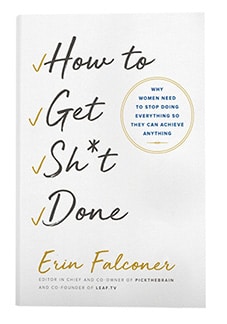Boundaries: What are you afraid of?
What comes to mind when you hear the word boundary? Do you ever use this word? If so, in what context? What does it mean to you?
The word “boundary” is trendier than ever. It’s been popular for a while in the 12 Step, and Manhattan shrink circuit, but now it’s falling out of mouths at afternoon coffees and cocktail parties. It’s jargon at its best; the concept accessible to people who have never sat through a therapy session. The boundary conversation passes from person to person like a flu virus; the strain mutates the farther away it gets from Patient Zero. “She just doesn’t respect my boundaries.” “Their family has tons of boundary issues.”
Hell, I am guilty of throwing boundary around in a self-righteous tone. Making someone else wrong is a smart way to gossip without feeling like a mean girl.
Here is the definition of a boundary as I am writing about it:
https://en.m.wikipedia.org/wiki/Personal_boundaries
Here is the definition of the word from a dictionary: a line that marks the limits of an area/ a limit of a subject or sphere of activity.
The word limit comes up twice which begs the question- why am I using language to create structures that coddle my limitations? What exactly are these limitations that I don’t want to push into?
My thoughts on boundaries have evolved with me. Year one and two into my sober journey I employed boundaries to rope off the area of grass where I had planted myself. I couldn’t grow and get trampled simultaneously. After I developed a sober sense of self, my rigid boundaries held me back from connecting more deeply in personal relationships. I didn’t realize that the boundaries that once served my growth were now hindering it and costing me the closeness I craved. An annual inventory is now part of my process because qualities and tools that outlive their purpose become unconscious habits that often stunt growth.
Once in a while, I come across someone who confronts me about something in an unnecessarily aggressive way. “Why can’t you come to my birthday?” When I respond honestly, unless they are missing some marbles, they drop it. People sense when they are at the receiving end of a lie, and white lies erode relationships in the same way as the big ones. For more on this read Sam Harris’s book Lying- I just listened to it on audible. It’s an easy to digest book with many great distinctions:
https://www.audible.com/pd?asin=B00FK6F02C&source_code=ASSORAP0511160006
I guarantee if you take a risk and kindly word your response- “thanks so much for inviting me and I can’t make it then the conversation will close, and you won’t be complaining about someone else’s boundary issues later in the day.
People who have trouble with no, love the boundary conversation- instead of looking at their struggle with no, they blame others for their bad boundaries. Taking a closer look at your relationship with No will help resolve your boundary issues. Here is my article No is a Complete Sentence:
http://thegrowthproject.blog/no-is-a-complete-sentence/
Have you ever heard any man ever talk about his boundaries? It cracks me up to imagine my husband telling a friend over a round of golf that a co-worker violated his boundaries. Men don’t have a use for the concept because they are super clear in their communication style.
As our culture continues to develop an ever more cautious relationship with direct communication, the boundary conversation gathers strength. It’s hard to stay close to your truth, let alone speak it when we all walk around worried about offending each other. Like good posture, honest communication immediately hooks us into power.
Here’s a great clip about being offended. I often hear people talk about being offended like they just got smacked across the face when nothing actually happened.
If a boundary makes us feel safe, then what are we afraid of to begin with? Is there a truth we want to avoid hearing?
Is the conjuring up of a boundary just another way to gain control in a passive-aggressive manner?
I now seek people out who can say it all, hear it all. Relationships founded on the permission to be authentic have an endless capacity. The more boundaries you have, the more you cap growth potential in all areas of your life.
One of my favorite people will tell me when my writing is off track. She’s a great writer, so it’s helpful. When she emails a comment in one sentence, I get a charge from the bluntness. Truth is not harmful; it’s clean and useful when it’s coming from a qualified source.
Use the concept of boundaries to expose your limitations before analyzing others.
Thayer Fox is the founder of The Growth Project
She is a writer, growth expert, speaker, and mentor. Thayer lives in New York City with her two children and husband.
Follow Thayer on Facebook or Instagram:
Erin shows overscheduled, overwhelmed women how to do less so that they can achieve more. Traditional productivity books—written by men—barely touch the tangle of cultural pressures that women feel when facing down a to-do list. How to Get Sh*t Done will teach you how to zero in on the three areas of your life where you want to excel, and then it will show you how to off-load, outsource, or just stop giving a damn about the rest.





Say, you got a nice article. Keep writing. You recognize, a lot of persons are looking around for this information, you could help them greatly. Sex Doll Blog
EIS Components is the stocking Distributor of 161CMQ045, we specialize in Vishay Semiconductor/Diodes Division all series electronic components. 161CMQ045 can be shipped within 24 hours after order. If you have any demands for 161CMQ045, Please kindly submit an RFQ here or send us an email. We will reply you as soon as possible.
에볼루션코리아
993ePsMSG/*’
에볼루션카지노
690alRPid<!.
에볼루션바카라
587gLudFM>_\
에볼루션룰렛
573PPJenN]),
에볼루션블랙잭128jIXQol/>”
강남카지노강남오프라인카지노 강남사설카지노 강남25 100%회원제 운영 놀러오세요~!!